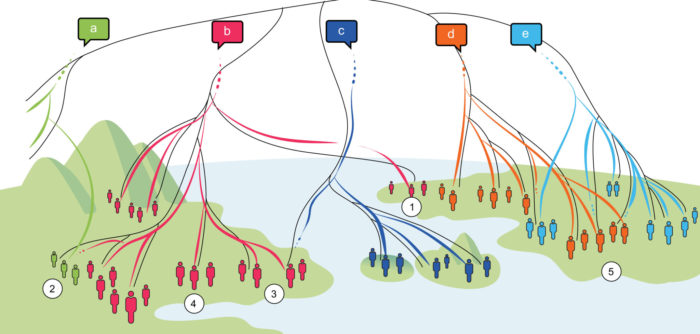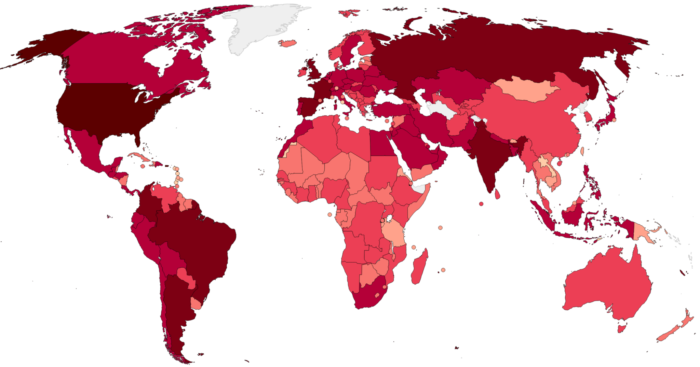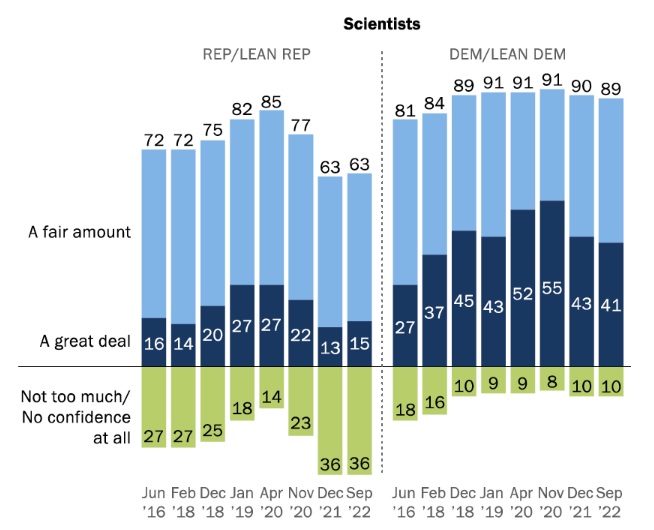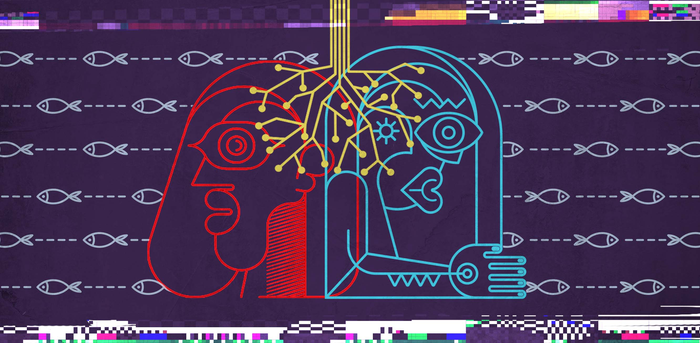Apr
17
2023
 I first wrote about the Theranos scandal in 2016, and I guess it should not be surprising that it took 7 years to follow this story through to the end. Elizabeth Holmes, founder of the company Theranos, was convicted of defrauding investors and sentenced to 11 years in prison. She will be going to prison even while her appeal is pending, because she failed to convince a judge that she is likely to win on appeal.
I first wrote about the Theranos scandal in 2016, and I guess it should not be surprising that it took 7 years to follow this story through to the end. Elizabeth Holmes, founder of the company Theranos, was convicted of defrauding investors and sentenced to 11 years in prison. She will be going to prison even while her appeal is pending, because she failed to convince a judge that she is likely to win on appeal.
I think her conviction and sentencing is a healthy development, and I hope it has an impact on the industry and broader culture. To quickly summarize, Holmes began a startup called Theranos which claimed to be able to perform 30 common medical laboratory tests on a single drop of blood and in a single day. So instead of collecting multiple vials of blood, with test results coming back over the course of a week, only a finger stick and drop of blood would be necessary (like people with diabetes do to test their blood sugar).
The basic idea is a good one, and also fairly obvious. Being able to determine reliable blood-testing results with a smaller sample, and being able to run multiple tests at a time, and very quickly, have obvious medical advantages. Patients, for example, who have prolonged hospital stays can actually get anemic from repeated blood draws. At some point testing has to be limited. Repeated blood sticks can also take its toll. For outpatient testing, rather than going to a lab, you could get a testing kit, provide a drop of blood, and then send it in.
The problem was that Holmes was apparently starting with a problem to be solved rather than a technology. We can think of technological development as happening in one of two primary ways. We may start with a problem and then search for a solution. Or we can start with a technology and look for applications. Both approaches have their pitfalls. The sweet spot is when both pathways meet in the middle – a new technology solves a clear problem.
Continue Reading »
Feb
17
2023
 There are a couple of recent stories that remind me that perhaps the most powerful thing in the world is political will. Often politicians and motivational speakers will say something along the lines of, “We can do anything, if we put our minds to it.” While this sounds like feel-good pablum, I think there is some truth to it (with a bunch of caveats regarding “anything”). We (collectively) have a great deal of ingenuity, technological savvy, institutions and methods of change, and resources. What we often lack is collective will.
There are a couple of recent stories that remind me that perhaps the most powerful thing in the world is political will. Often politicians and motivational speakers will say something along the lines of, “We can do anything, if we put our minds to it.” While this sounds like feel-good pablum, I think there is some truth to it (with a bunch of caveats regarding “anything”). We (collectively) have a great deal of ingenuity, technological savvy, institutions and methods of change, and resources. What we often lack is collective will.
But occasionally the stars align, pushing political will beyond some threshold, and magically the impossible becomes possible. The first of the two recent examples I referred to above is the incorporation of telehealth into medical practice. As both a doctor and a computer nerd with an interest in medical informatics, I have long pushed and hoped for a greater incorporation of telehealth for managing patients. But this was not something that I as an individual (especially working for a large institution) could do much about. I was told that it was being discussed and worked on, but there were many difficult obstacles.
First, we need the technology to have secure video and audio remote communication. This technology would need to exist on the patient end as well as the clinician. Second, insurance companies would need to pay for such visits. In order to be universal, this would likely require state mandates. We would also need to carefully assess the effectiveness of online health visits to be sure there were no unintended negative consequences. Ideally, states would also offer licensure reciprocity for online visits, otherwise patients who see doctors across state lines would not be able to be seen online. And practices need to carefully track the effect of telehealth on their financial bottom line. After years of exploration I was told more years of negotiation and study were required, but this might work eventually (just don’t hold your breath).
Then the pandemic hit. Suddenly, literally within days, we had a telehealth system up and running. It turns out the technology was already in place. On the patient end all it requires is a smart phone and downloading an off-the-shelf app, or a computer with a webcam. It was a little bumpy at first, but the system rapidly improved. States suspended licensure restrictions across states and mandated insurance coverage.
Continue Reading »
Jan
23
2023
 After publishing thousands of blog posts I have found that sometimes the most trivial topics garner the most debate, both in amount and intensity. I wouldn’t call it a rule, just a casual observation, likely rife with confirmation bias. But at the very least I am surprised sometimes by how vehemently people will argue about points that are ultimately subjective and of little importance.
After publishing thousands of blog posts I have found that sometimes the most trivial topics garner the most debate, both in amount and intensity. I wouldn’t call it a rule, just a casual observation, likely rife with confirmation bias. But at the very least I am surprised sometimes by how vehemently people will argue about points that are ultimately subjective and of little importance.
Grammatical and semantic arguments tend to fall into that category. My speculation is that this is partly due to the fact that people’s brains literally get wired from exposure to language so that words and phrases just sound right or sound wrong. When someone else says or writes something that just feels wrong it can be extremely irritating. This feeling, in turn, leads us to act as if certain ways of saying things are inherently correct or incorrect, or at least “proper”. As might be expected, the internet is fertile ground for people to vent their grammatical peeves. This has also lead to a backlash against the “grammar nazis”, often in the context that whatever their linguistic peeve, it is not actually “correct” by any objective criteria.
I find this topic fascinating, primarily because it challenges the logic and reasoning we use to determine which linguistic forms are “proper and correct”. Language is endlessly complex and fascinating. It is an organic evolving thing, and we have a history of how it has changed over thousands of years.
The latest example I encountered of the “grammar wars” is the question of when it is proper to use “less” vs “fewer”. It came up because on the latest SGU episode Jay said “less hours of sleep” and I corrected him to say “fewer hours of sleep”. I did this mainly for the entertainment value, but I think the point is valid. My correction sparked some e-mail backlash, often pointing to references arguing that “less” is just fine in such usage. However I found some of the arguments used to be unsatisfying, and even hypocritical. Here is a quick overview of the discussion.
Continue Reading »
Jan
09
2023
 The original Avatar movie came out in 2009, 13 years ago. Its budget was 240 million and it grossed nearly 3 billion dollars. So of course there was going to be a sequel. It’s just surprising that it took 13 years.
The original Avatar movie came out in 2009, 13 years ago. Its budget was 240 million and it grossed nearly 3 billion dollars. So of course there was going to be a sequel. It’s just surprising that it took 13 years.
Also a little surprising, and disappointing, is how poorly written Avatar: The Way of the Water was. The movie was visually stunning, as expected, and some aspects of watching the movie were enjoyable. Most of the future technology was also pretty good. I loved the spaceships the humans used to get to Pandora, the robots and exoskeletons were also impressive. The cloning technology was an obvious follow up to the Avatar technology of the first movie, and also a clever plot device, allowing the return of previously killed antagonists.
But the writing was just horrific. It’s not as if Cameron did not have 13 years to hire the best writers and tweak the hell out of the script. It’s not as if he did not have a virtually unlimited budget given the profitability of the franchise. I have two major hypotheses as to why the writing was so bad, and they are not mutually exclusive.
The first is simply a lack of imagination. We are living, in many ways, during the golden age of television and cinema, and not just because of big budgets and advanced technology. We have lots of choices, and some of those choices are stellar. There are plenty of examples of excellent writing, and they have set the bar extremely high. I definitely think this has lowered my tolerance for mediocre writing. Formulaic scripts, predictable plots, and sluggish pacing are just not acceptable anymore. The art of great storytelling has evolved to a high level, and to some extent the industry is now a victim of its own success.
Continue Reading »
Nov
22
2022
 There are now approximately 8 billion people on the planet. In addition, there are over 7,100 languages spoken on Earth. One question for anthropologists and linguistic experts is – how closely do genetic relationships match language relationships. Both language and genes are generally inherited from our parents – well, genes absolutely, but language generally. It makes sense that a map of genetic relatedness would closely follow a map of linguistic relatedness. If we zoom out from a single family to a population, the question becomes a bit more complex. Populations can mix genes with other populations. Two populations that derived relatively recently from a common population will likely be genetically similar, and even if their current languages differ, they too likely share a common root and therefore lots of similarities.
There are now approximately 8 billion people on the planet. In addition, there are over 7,100 languages spoken on Earth. One question for anthropologists and linguistic experts is – how closely do genetic relationships match language relationships. Both language and genes are generally inherited from our parents – well, genes absolutely, but language generally. It makes sense that a map of genetic relatedness would closely follow a map of linguistic relatedness. If we zoom out from a single family to a population, the question becomes a bit more complex. Populations can mix genes with other populations. Two populations that derived relatively recently from a common population will likely be genetically similar, and even if their current languages differ, they too likely share a common root and therefore lots of similarities.
What happens, then, when scientists overlay the genetic and linguistic maps of humanity? A recent study does just that. To do this they compiled a massive database, called GeLaTo, or Genes and Languages Together. GeLaTo includes data from “4,000 individuals speaking 295 languages and representing 397 genetic populations.” That is fairly robust, but there is also lots of room for continuing to add information to the database to add more precision and detail to any analysis.
What they found is that the match between genes and language is very good, about 80%. However, that still leaves 20% of identified genetic populations with a language mismatch. How does this happen? It doesn’t take much imagination to think of a scenario where a population takes on the language of another population in their region that is genetically distinct. For example:
Some peoples on the tropical eastern slopes of the Andes speak a Quechua idiom that is typically spoken by groups with a different genetic profile who live at higher altitudes. The Damara people in Namibia, who are genetically related to the Bantu, communicate using a Khoe language that is spoken by genetically distant groups in the same area. And some hunter-gatherers who live in Central Africa speak predominantly Bantu languages without a strong genetic relatedness to the neighboring Bantu populations.
Continue Reading »
Nov
04
2022
 A panel of 386 experts from various disciplines and 122 countries have put together a consensus statement on how the world can best deal with the continued challenge of COVID-19. The statement contains 57 specific recommendations that had >95% consensus from the panel, with most having >99% consensus. This is like an M&M rounds for the world’s COVID response. In medicine we have morbidity and mortality rounds where we review both statistics and individual cases with bad outcomes. The point is to explore those cases and determine what went wrong, if anything, and how individually and systemically we can prevent or minimize future similar negative outcomes. This panel did the same thing for our COVID response.
A panel of 386 experts from various disciplines and 122 countries have put together a consensus statement on how the world can best deal with the continued challenge of COVID-19. The statement contains 57 specific recommendations that had >95% consensus from the panel, with most having >99% consensus. This is like an M&M rounds for the world’s COVID response. In medicine we have morbidity and mortality rounds where we review both statistics and individual cases with bad outcomes. The point is to explore those cases and determine what went wrong, if anything, and how individually and systemically we can prevent or minimize future similar negative outcomes. This panel did the same thing for our COVID response.
Such endeavors are not about placing blame. We can leave that up to the politicians looking to score points. The purpose is to map out a future course, to take specific actions that will minimize future death and negative health outcomes from the COVID pandemic, which is (despite what you may want to believe) not over. The SARS-CoV-2 virus continues to spread throughout the population, and continues to mutate with variants and subvariants increasingly able to evade prior immunity (from infection or vaccination). As predicted the pandemic is slowly morphing into an endemic infection, like the flu, that will simply be with us indefinitely. But infections are still at pandemic levels.
The focus of the recommendations is on how governments can enact policy and allocate resources to better tamp down infections and reduce negative outcomes. This is needed, because government responses were mostly a failure. This doesn’t mean that the US and other governments didn’t do anything useful. They did. But from the perspective of what a fully prepared optimal response would have been, the actual response, in my opinion, was basically a failure. It’s not like we didn’t see it coming. Even now, after everything the world has been through, our preparedness and response is less than ideal.
Continue Reading »
Nov
03
2022
 It’s that time of year again – the time when we debate, yet again, whether or not we should get rid of shifting the clocks twice a year and if so, which time to make permanent, DST or standard time. It does seem like this debate has been heating up in recent years, but it is unclear if we have a political consensus sufficient to make a change. In March of this year the Senate actually passed the Sunshine Protection Act, which would make DST permanent. However, the bill has stalled in the House. In previous years such measures have simply died in committee. This time around it just seems like politicians have more important things on their plate.
It’s that time of year again – the time when we debate, yet again, whether or not we should get rid of shifting the clocks twice a year and if so, which time to make permanent, DST or standard time. It does seem like this debate has been heating up in recent years, but it is unclear if we have a political consensus sufficient to make a change. In March of this year the Senate actually passed the Sunshine Protection Act, which would make DST permanent. However, the bill has stalled in the House. In previous years such measures have simply died in committee. This time around it just seems like politicians have more important things on their plate.
DST was first instituted in the US in 1918 as a wartime measure, to reduce energy costs by extending light in the evening when people are active. The measure was brought back during WWII, after which it was left to the states whether to keep DST. In 1966, however, the Uniform Time Act was passed to encourage all states to adopt DST. Initially DST was instituted for 6 months of the year, from late spring to early fall. In 1974 DST was made year round, but this led to immediate complaints that children were going to school in the morning and parents were going to work in pitch dark, and the measure was repealed the next year. DST was also extended in 2007 until just after Halloween, ostensibly to make trick-or-treaters safer walking the streets. But there have also been significant industry lobbies. The candy industry lobbied hard for DST to extend past Halloween. But many industries, from golf to barbeque supplies, make more money from extended DST. Now DST is 8 months out of 12.
The question remains – which option is best: to keep the current system where we change between DST and Standard Time twice a year, to make DST permanent, or standard time permanent? There is no one objective answer because every option has trade-offs.
Continue Reading »
Oct
27
2022
 A new Pew survey updates their data on American’s trust in scientists. The “good news” is that overall, trust remains high, with 77% saying they trust scientists a great deal or a fair amount, and only 23% not too much or not at all. Actually, when you think about it these numbers are still pretty bad, but they seem good because our expectations are so low. More than one in five people don’t trust scientists. For more perspective, that 77% figure is the same for the military. The highest rated group was medical scientists at 80%. Elected officials were at 28%.
A new Pew survey updates their data on American’s trust in scientists. The “good news” is that overall, trust remains high, with 77% saying they trust scientists a great deal or a fair amount, and only 23% not too much or not at all. Actually, when you think about it these numbers are still pretty bad, but they seem good because our expectations are so low. More than one in five people don’t trust scientists. For more perspective, that 77% figure is the same for the military. The highest rated group was medical scientists at 80%. Elected officials were at 28%.
These numbers are also fairly stable over time. Interestingly they did bump up a bit during the pandemic, but then quickly returned to their historical levels. Some argue that these numbers are pretty good and we shouldn’t “freak out about the minority.” I disagree – not that we should freak out, but we do need to take these numbers seriously, and they are not necessarily good news.
One reason I am still concerned about these numbers is that there is a pretty significant partisan divide. Recent years have Democrats at around 90% with Republicans around 63%. More than a third of one major political party does not trust scientists, and they seem to be the political center of the party. This gets even worse if you look at the question of whether or not scientists should play an active role in policy debates. Only 66% of Democrats say yes, and only 29% of Republicans (down from 75 and 43 respectively). This, to me, is very telling. It’s one thing to say you trust scientists, but what does that mean that you also don’t want them to play an active role in policy?
Continue Reading »
Sep
02
2022
 Why do societies collapse? This is an interesting question, and as you might imagine the answer is complex. There are multiple internal and external reasons, but a core features seems to be that a combination of factors were simultaneously at work – a crisis that the society failed to deal with adequately because of dysfunctional institutions and political infrastructure. All societies face challenges, but successful ones solve them, or at least make significant adjustments. There are also multiple ways to define “collapse”, which does not have to involve complete extinction. We can also add political or institutional collapse, where, for example, a thriving democracy collapses into a dictatorship.
Why do societies collapse? This is an interesting question, and as you might imagine the answer is complex. There are multiple internal and external reasons, but a core features seems to be that a combination of factors were simultaneously at work – a crisis that the society failed to deal with adequately because of dysfunctional institutions and political infrastructure. All societies face challenges, but successful ones solve them, or at least make significant adjustments. There are also multiple ways to define “collapse”, which does not have to involve complete extinction. We can also add political or institutional collapse, where, for example, a thriving democracy collapses into a dictatorship.
There are many people concerned that America is facing a real threat that could collapse our democracy. The question is – do we have the institutional vigor to make the appropriate adjustments to survive these challenges? Sometimes, by the time you recognize a serious threat it’s too late. At other times, the true causes of the threat are not recognized (at least not by a majority) and therefore the solutions are also missed. So the question is, to the extent that American democracy is under threat, what are the true underlying causes?
This is obviously a complex question that I am not going to be able to adequately address in one blog post. I would like to suggest, however, that social media algorithms are at least one factor contributing to the destabilizing of democracy. It would be ironic if one of the greatest democracies in world history were brought down in part by YouTube algorithms. But this is not implausible.
Continue Reading »
Dec
07
2021
 What do economics, biological evolution, and democracy have in common? They are all complex adaptive systems. This realization reflects one of the core strengths of a diverse intellectual background – there are meaningful commonalities underlying different systems and areas of knowledge. In fact, science and academia themselves are complex adaptive systems that benefit from diversity of knowledge and perspective. All such systems benefit from diversity, and suffer when that diversity is narrowed, possibly even fatally.
What do economics, biological evolution, and democracy have in common? They are all complex adaptive systems. This realization reflects one of the core strengths of a diverse intellectual background – there are meaningful commonalities underlying different systems and areas of knowledge. In fact, science and academia themselves are complex adaptive systems that benefit from diversity of knowledge and perspective. All such systems benefit from diversity, and suffer when that diversity is narrowed, possibly even fatally.
A recent collection of studies focuses on American democracy as a complex adaptive system, and explores the mathematical underpinnings of how democracies behave and change over time in response to specific variables. Some of the insights are not surprising, but the research adds mathematical rigor to these phenomena. For example, you will likely not be surprised to learn that social media echochambers (what they call “epistemic bubbles”) lead to increased polarization of political views. But how, exactly, does this happen?
What various researchers found is that when we obtain our political news from a network of like-minded people several things happen. First, the group tends to narrow over time in terms of political diversity. This happens because those who are considered “not pure enough” are ejected from the network, or leave because they feel less welcome. Further, people within the network tend to get access to less and less political news total, and the news they are exposed to is increasingly polarized. This doesn’t happen when such networks do not routinely share political news to begin with.
The core problem, therefore, seems to be the diversity of sources of information. Similar networks of people, in fact, can have a moderating effect on individual members, if the group maintains a diversity of sources of information reflecting a diversity of political opinions. Further, a healthy moderating effect is supported by individual members exploring outside the group for sources of information.
Continue Reading »
 I first wrote about the Theranos scandal in 2016, and I guess it should not be surprising that it took 7 years to follow this story through to the end. Elizabeth Holmes, founder of the company Theranos, was convicted of defrauding investors and sentenced to 11 years in prison. She will be going to prison even while her appeal is pending, because she failed to convince a judge that she is likely to win on appeal.
I first wrote about the Theranos scandal in 2016, and I guess it should not be surprising that it took 7 years to follow this story through to the end. Elizabeth Holmes, founder of the company Theranos, was convicted of defrauding investors and sentenced to 11 years in prison. She will be going to prison even while her appeal is pending, because she failed to convince a judge that she is likely to win on appeal.
 There are a couple of recent stories that remind me that perhaps the most powerful thing in the world is political will. Often politicians and motivational speakers will say something along the lines of, “We can do anything, if we put our minds to it.” While this sounds like feel-good pablum, I think there is some truth to it (with a bunch of caveats regarding “anything”). We (collectively) have a great deal of ingenuity, technological savvy, institutions and methods of change, and resources. What we often lack is collective will.
There are a couple of recent stories that remind me that perhaps the most powerful thing in the world is political will. Often politicians and motivational speakers will say something along the lines of, “We can do anything, if we put our minds to it.” While this sounds like feel-good pablum, I think there is some truth to it (with a bunch of caveats regarding “anything”). We (collectively) have a great deal of ingenuity, technological savvy, institutions and methods of change, and resources. What we often lack is collective will. After publishing thousands of blog posts I have found that sometimes the most trivial topics garner the most debate, both in amount and intensity. I wouldn’t call it a rule, just a casual observation, likely rife with confirmation bias. But at the very least I am surprised sometimes by how vehemently people will argue about points that are ultimately subjective and of little importance.
After publishing thousands of blog posts I have found that sometimes the most trivial topics garner the most debate, both in amount and intensity. I wouldn’t call it a rule, just a casual observation, likely rife with confirmation bias. But at the very least I am surprised sometimes by how vehemently people will argue about points that are ultimately subjective and of little importance. There are now approximately 8 billion people on the planet. In addition, there are over
There are now approximately 8 billion people on the planet. In addition, there are over  A panel of 386 experts from various disciplines and 122 countries have put together a
A panel of 386 experts from various disciplines and 122 countries have put together a  It’s that time of year again – the time when we debate, yet again, whether or not we should get rid of shifting the clocks twice a year and if so, which time to make permanent, DST or standard time. It does seem like this debate has been heating up in recent years, but it is unclear if we have a political consensus sufficient to make a change. In March of this year the Senate actually passed the
It’s that time of year again – the time when we debate, yet again, whether or not we should get rid of shifting the clocks twice a year and if so, which time to make permanent, DST or standard time. It does seem like this debate has been heating up in recent years, but it is unclear if we have a political consensus sufficient to make a change. In March of this year the Senate actually passed the  A
A  Why do societies collapse? This is an interesting question, and as you might imagine
Why do societies collapse? This is an interesting question, and as you might imagine  What do economics, biological evolution, and democracy have in common? They are all complex adaptive systems. This realization reflects one of the core strengths of a diverse intellectual background – there are meaningful commonalities underlying different systems and areas of knowledge. In fact, science and academia themselves are complex adaptive systems that benefit from diversity of knowledge and perspective. All such systems benefit from diversity, and suffer when that diversity is narrowed, possibly even fatally.
What do economics, biological evolution, and democracy have in common? They are all complex adaptive systems. This realization reflects one of the core strengths of a diverse intellectual background – there are meaningful commonalities underlying different systems and areas of knowledge. In fact, science and academia themselves are complex adaptive systems that benefit from diversity of knowledge and perspective. All such systems benefit from diversity, and suffer when that diversity is narrowed, possibly even fatally.




